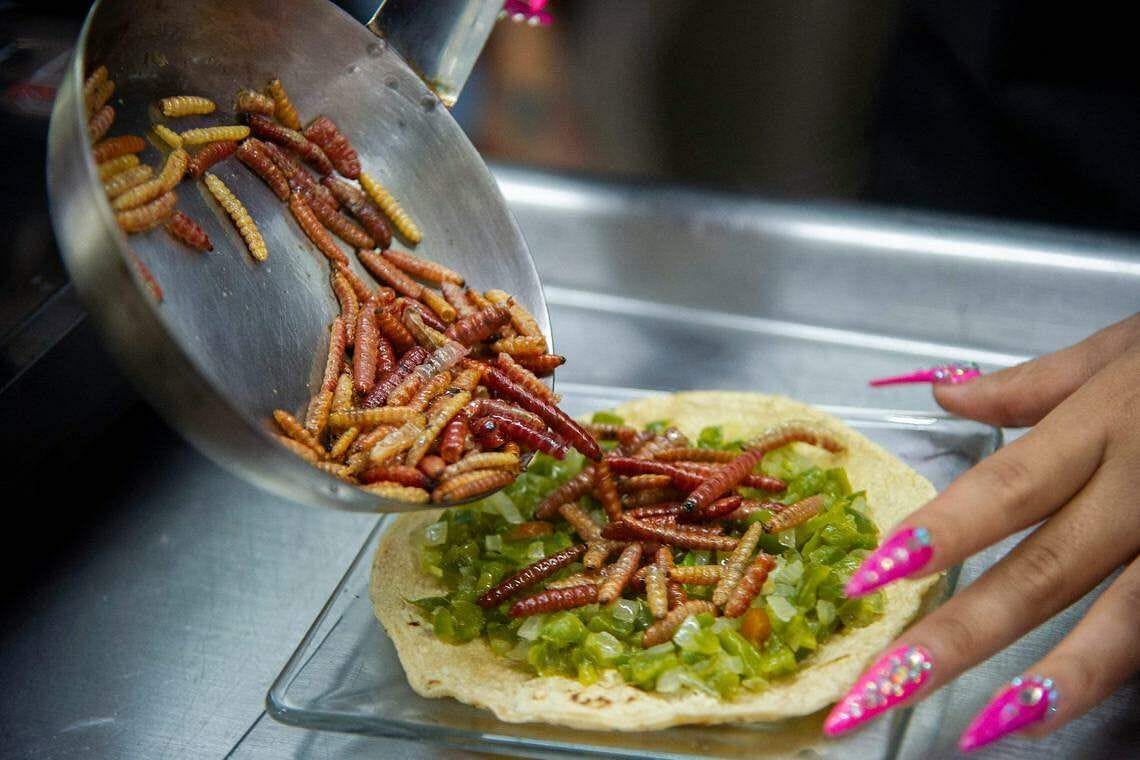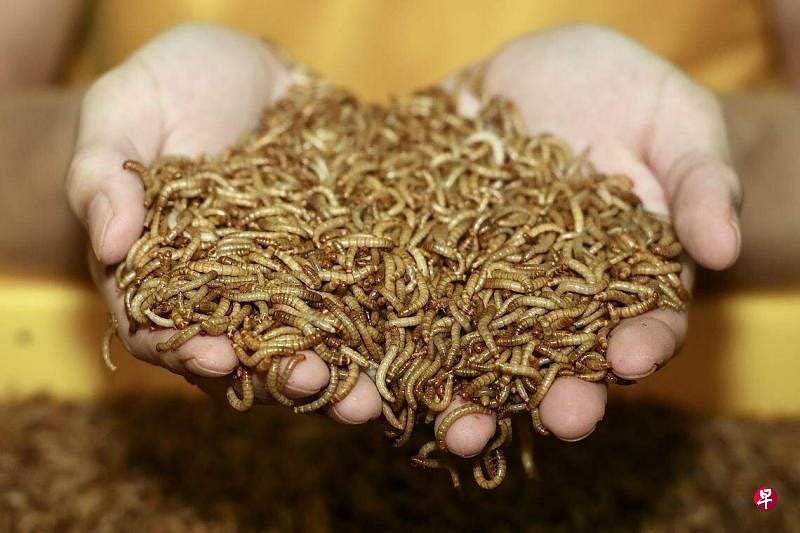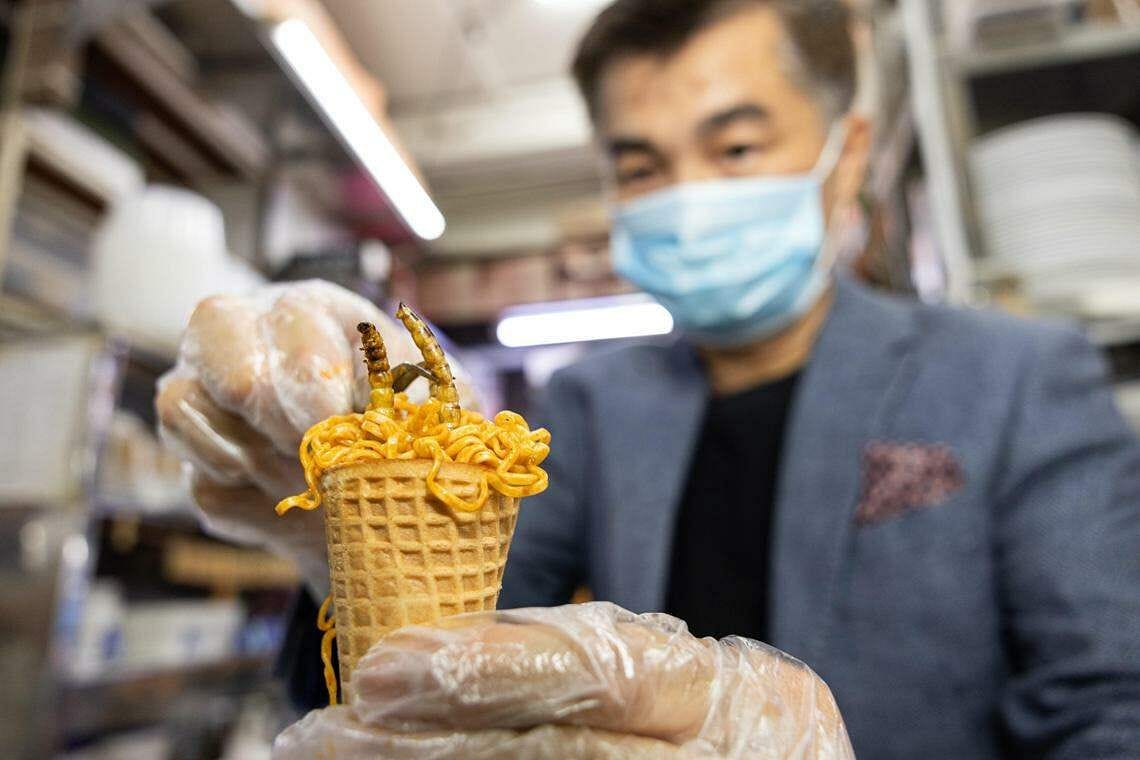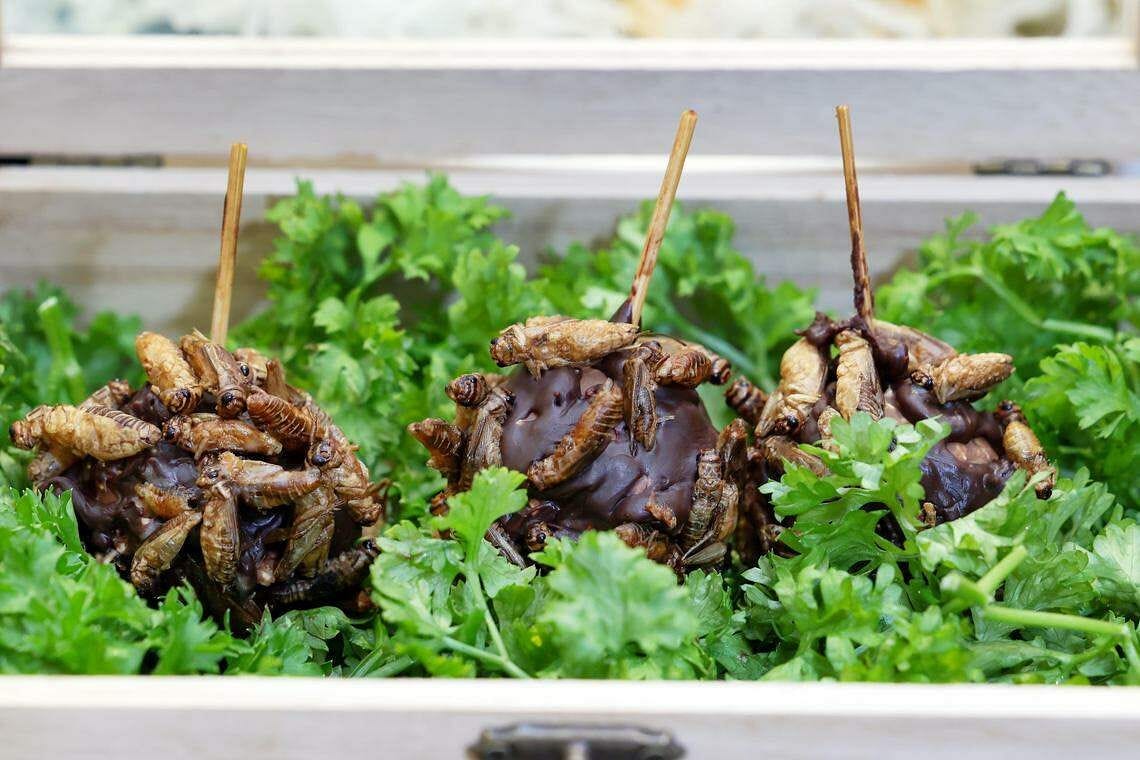Translation:
The Singapore Food Agency (SFA) has assessed and approved 16 species of insects as safe for consumption. Effective immediately, businesses can import, manufacture, and sell these insect-based foods locally, with the public expected to have access soon. This initiative has been delayed by about a year.
The approved insects include crickets, silkworm pupae, and grasshoppers, among others. Insect foods not on this list will require separate evaluation.
From October 5 to December 4, 2022, the SFA conducted public consultations on how to regulate the local farming and importation of edible insects. The agency initially planned to approve insect foods for the local market in the second half of 2023, but this was postponed to the first half of this year. Finalizing market entry and regulatory details took longer than expected.
After two delays, the SFA announced on Monday (July 8) that businesses can now import, manufacture, and sell these insect-based foods, providing consumers with more choices.
Businesses importing or farming insects for human or animal consumption must meet SFA standards. For example, they must prove that the insects are farmed under strict food safety controls and not harvested from the wild. Additionally, the farming substrate for the insects must be free from pathogens or harmful contaminants.
Importers and sellers of processed insect foods must ensure their products are safe for consumption and comply with local food regulations. Like other foods, insect foods must undergo food safety testing and cannot be sold if they fail to meet standards.
Businesses selling pre-packaged insect foods must label their products to indicate the insect ingredients, helping consumers make informed decisions.
Misleading statements about food ingredients can breach food sales laws. First-time offenders face fines of up to $5,000, while repeat offenders can be fined up to $10,000 or imprisoned for up to three months, or both.

In recent years, the United Nations Food and Agriculture Organization has been actively promoting the commercial farming of insects for human consumption and as animal feed, generating significant commercial interest. According to the FAO, there are over 1,900 types of edible insects.
Insects are rich in protein, vitamins, fibre, and minerals, and their farming requires less land and water while emitting fewer greenhouse gases compared to traditional livestock.
The SFA closely monitors developments in food production and innovation and has received inquiries about importing insects for human consumption or animal feed. Although eating insects is a new concept locally, it is a long-standing tradition in some Asian countries, such as South Korea and Thailand.
The SFA's approval followed a comprehensive scientific review referencing practices in the EU, Australia, New Zealand, South Korea, and Thailand. The agency emphasized its commitment to food safety, establishing a robust framework to ensure imported or locally farmed insects are safe to eat.
Professor William Chen, Director of Nanyang Technological University's Food Science and Technology Programme and the Future Ready Food Safety Hub, noted that the approval of insect foods will expand local food sources. Ideally, edible insects should be farmed locally to ensure supply chain resilience and better regulation of farming conditions and safety.
Chen explained that the two delays in the SFA's approval process were likely due to additional time needed to consider food safety, potential allergic reactions, and public acceptance. Unlike countries with insect-eating traditions where insects are mostly wild-caught, Singapore aims to farm insects in controlled environments.
While diversifying food sources strengthens Singapore's food security, Chen pointed out that insect foods are an emerging food source and are still relatively small in quantity compared to traditional protein sources. Therefore, the contribution of insect foods to Singapore's 30 by 30 vision depends on their adoption speed and effectiveness.
Singapore's 30 by 30 vision aims to increase local agricultural production to meet 30% of the population's nutritional needs by 2030.
House of Seafood, a local restaurant, has started offering insect-based dishes at its Punggol outlet. CEO Francis Ng said they will use five of the approved insect species, including silkworm pupae and crickets, to create 30 dishes.
Ng mentioned that his phone hasn't stopped ringing since the SFA announcement, with over 10 eager customers inquiring about their insect dishes from 2PM to 6PM.







